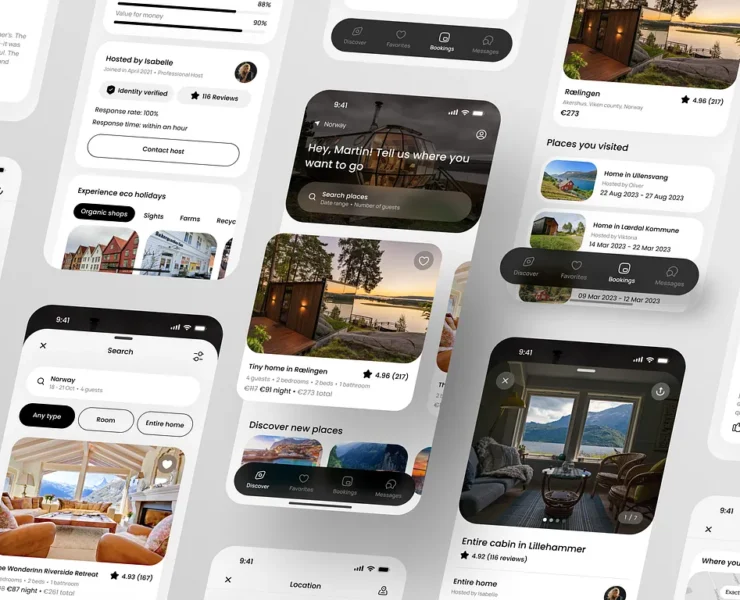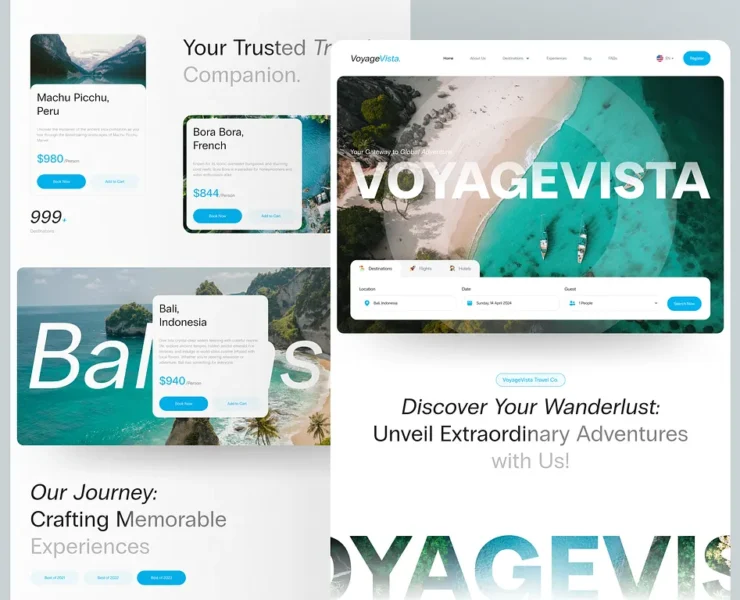Table of Contents
- The Hard Truth No One Is Telling You
- 1) “My WordPress Theme Is Basically A Ready Product!” (80% of you)
- 2) “I’m Just Building a WordPress Website” (95% of you)
- 3) “My Brilliant Idea Is My Competitive Advantage!” (50% of you)
- 4) “I Won’t Give Away ANY Equity – It’s MY Idea!” (80% of you)
- 5) “I Can Bootstrap This On the Cost of an iPhone” (80% of you)
- 6) “I’m Going ALL-IN On This Startup!” (Luckily No one)
- 7) “I’ll Make Easy Passive Income Within Months!” (80% of you)
- 8) “We’ll Figure Out Monetization After We Get Users”
- 9) “If I Build An Amazing Product, Users Will Flood In”
- 10) “I Can Do Everything Myself”
- The Bottom Line: Change Your Mindset Or Fail
The Hard Truth No One Is Telling You
After working with hundreds of struggling founders and building my own successful marketplaces, I’ve seen the same destructive thought patterns over and over again. These toxic mindsets are silently sabotaging your startup before you even launch.
Let me be brutally honest: 90% of directory marketplace founders are doomed to fail because they refuse to abandon these deadly beliefs. Don’t be one of them.
1) “My WordPress Theme Is Basically A Ready Product!” (80% of you)
DEAD WRONG.
A demo template is NOT a ready-to-launch MVP. Period.
Yes, WordPress and directory themes can save you thousands of development hours and get you to 70-80% completion quickly. But that final 20%? It’s a monster lurking in the shadows, waiting to devour your time, money, and sanity.
Without technical expertise, you have NO IDEA what still needs to be done because you don’t know what you don’t know. You’ll spend months or years trying to launch, creating a buggy mess that’s WORSE than the original demo.
The reality check: Either partner with a technical co-founder or hire a specialized marketplace developer. There is NO third option if you want to succeed.
2) “I’m Just Building a WordPress Website” (95% of you)
WAKE UP! You’re not building “just a WordPress site” – you’re creating a STARTUP.
You’re building a PRODUCT. Your marketplace IS the product that must provide value to generate revenue.
WordPress, themes, and plugins are merely tools that help you build faster and cheaper. If your marketplace would typically cost $100K to build from scratch, these tools might get you there for $10K. That’s their only purpose.
Critical distinction: On an e-commerce site, the product is what people receive in the mail. On YOUR directory or marketplace, the website itself IS the product.
If you can’t make this fundamental mental shift, you’ve already failed.
3) “My Brilliant Idea Is My Competitive Advantage!” (50% of you)
ABSOLUTELY NOT. Ideas are worthless without execution.
Everyone has “brilliant ideas.” What’s your REAL competitive advantage?
- Are you an expert developer?
- A sales superstar?
- A marketing genius?
- Do you have deep industry connections?
- A massive following in your niche?
- Significant capital to invest?
Hard truth: That “cool idea connecting X and Y” is NOT a competitive advantage. Neither is being “smart” or having bought an $80 theme from ThemeForest, that is everyone’s else starting point as well.
Without specific, tangible advantages that separate you from the crowd, you are just wasting your time.
4) “I Won’t Give Away ANY Equity – It’s MY Idea!” (80% of you)
Listen carefully: 100% of ZERO is still ZERO.
Would you rather own 100% of your failed startup or 5% of Airbnb? This isn’t a trick question.
The most successful founders I’ve worked with understand a fundamental truth: No one succeeds in the startup world alone. Not Zuckerberg. Not Bezos. Not anyone.
You need tremendous input from others with complementary skills and resources. This means giving up equity. It’s not optional – it’s survival.
5) “I Can Bootstrap This On the Cost of an iPhone” (80% of you)
DELUSIONAL.
Marketplaces are investors’ favorite businesses for a reason – they can deliver 100x returns when executed right. But they’re notoriously difficult and capital-intensive at the beginning.
You’re fighting the chicken-and-egg problem. You’re battling network effects. You’re marketing to TWO distinct user groups simultaneously.
Cold, hard fact: If you don’t have external cash flow, savings, or willingness to raise capital, DO NOT build a startup. Full stop.
Go build a service business instead. There’s no shame in it – just don’t waste years of your life on a doomed venture.
6) “I’m Going ALL-IN On This Startup!” (Luckily No one)
DANGEROUS AND UNNECESSARY.
Yes, startups need capital and commitment. But risking everything is foolish, not brave.
- DON’T quit your day job until you have traction
- DON’T sell your home to fund this
- DON’T take out loans to build your startup
Banks won’t loan you money for a speculative venture anyway, and if they did, you’d be risking financial ruin.
The smart approach: Build your startup on the side while maintaining income stability. Grow it gradually with the resources you can genuinely afford to lose.
7) “I’ll Make Easy Passive Income Within Months!” (80% of you)
LAUGHABLY NAIVE.
If you’re here to “make money online,” quit your 9-to-5, and enjoy “passive income,” you’ve been sold a fantasy.
Thinking “I’ve invested $10K and need to make it back in 2 years” is completely backward. If guaranteed returns are what you want, put your money in an index fund and save yourself the heartache.
The marketplace reality: This is a high-risk, high-reward business model that might make you a millionaire in 5-10 years through an exit – or leave you with nothing.
If you can’t stomach that risk, this isn’t for you. And that’s perfectly okay.
8) “We’ll Figure Out Monetization After We Get Users”
YOU WILL BUILD EVERYTHING WRONG
Building without a clear monetization strategy is like constructing a car without an engine – it might look nice, but it’s not going anywhere.
Before writing a single line of code, you must know EXACTLY how your marketplace will make money:
- Commission on transactions?
- Subscription fees?
- Featured listings?
- Premium membership tiers?
Non-negotiable requirement: Your revenue model must be baked into the core experience from day one. It shapes everything from feature prioritization to user experience design.
“Build it and they will pay…somehow” is not a strategy. It’s a fantasy that will burn through your resources and leave you with nothing.
9) “If I Build An Amazing Product, Users Will Flood In”
SPECTACULARLY WRONG.
The “if you build it, they will come” mentality kills marketplaces faster than anything else.
Your beautiful, feature-rich platform with zero users is WORTHLESS. Completely and utterly worthless.
The marketplace paradox: Suppliers won’t join without buyers. Buyers won’t come without suppliers. Breaking this deadlock requires strategic thinking that has nothing to do with your product’s features.
You need a deliberate strategy to solve this fundamental challenge:
- Artificially create supply or demand initially
- Focus on a tiny niche market first
- Manually recruit your first 100 suppliers
- Leverage existing communities where your users already gather
Critical ratio: Spend at least 50% of your energy solving the cold start problem, not adding more features no one will see.
10) “I Can Do Everything Myself”
FATALLY ARROGANT.
Even if you’re a technical genius who can build the entire platform, you still can’t do everything else required:
- Supplier acquisition
- User acquisition
- Content creation
- Customer support
- Financial planning
- Legal compliance
- Market research
The uncomfortable truth: Successful marketplaces are built by TEAMS with complementary skills.
The most successful marketplace startups have at least two founders – typically one technical and one business-focused. They understand that building a marketplace is a team sport, not a solo performance.
The Bottom Line: Change Your Mindset Or Fail
These delusional mindsets are why 90% of marketplace startups die before gaining any traction. They’re silent killers that destroy potential before it has a chance to develop.
The marketplace model can deliver extraordinary returns, but only for founders who approach it with clear eyes and the right mindset.
Ask yourself honestly: How many of these destructive beliefs are holding you back right now? Are you willing to change them before it’s too late?






